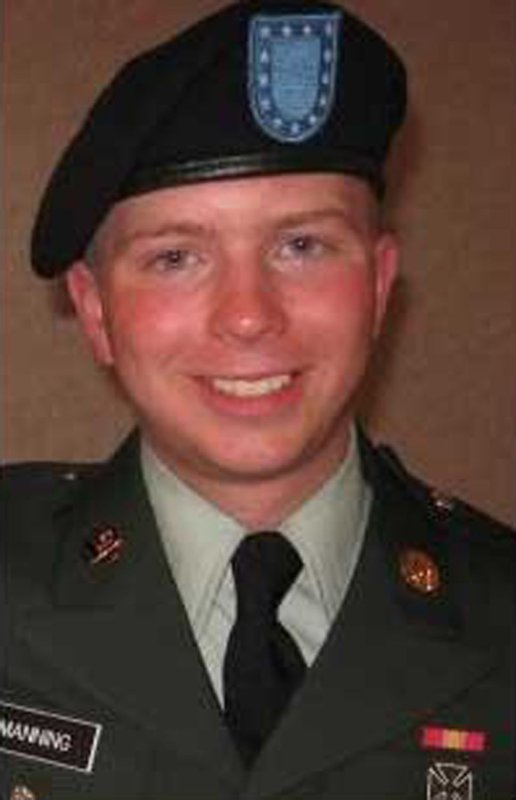U.S. Army PFC Bradley Manning, seen in this undated file photo, is accused of leaking classified information to WikiLeaks. Manning is on trial in a court martial which could land him in prison for life. UPI/File |
License Photo
FORT MEADE, Md., July 2 (UPI) -- Prosecutors began ending their case against U.S. Army Pfc. Bradley Manning, accused of leaking sensitive data, by focusing on Osama bin Laden's WikiLeaks use.
Prosecutors at Manning's court-martial at Fort Meade, Md., Monday claimed Manning, who has admitted uploading more than 700,000 files -- including diplomatic cables, incident reports from the wars in Iraq and Afghanistan and a video of an airstrike in Baghdad -- effectively began working for WikiLeaks when he was stationed in Iraq and used the website's 2009 "Most-Wanted Leaks" as his guide, Courthouse News Service reported.
The "Most-Wanted Leaks" document allows users to add material they think is most sought by journalists, activists, historians, lawyers, police or human rights investigators of any given country.
The government authenticated that list for the first time on Monday.
Manning has maintained he leaked only low-sensitivity files, but prosecutors began concluding their case by offering evidence and testimony indicating the material had value to America's enemies and foreign intelligence services.
During the May 2, 2011, raid on bin Laden's compound in Abbottabad, Pakistan, a secret prosecution witness found letters indicating the late al-Qaida chief requested and got "war logs" from Afghanistan as well as state department information.
Neither side disputed the information, so the government entered a stipulation into the record Monday, Courthouse News Service said.
The parties also agreed that al-Qaida spokesman Adam Gadahn used a clip of the Baghdad airstrike video in a statement and encouraged followers to select anything "useful from WikiLeaks" against the U.S. "enemy."
Daniel Lewis, believed to be the government's last witness, faced stiff cross-examination about his credentials as an expert on counter-intelligence and espionage, Courthouse News Service said.
Prosecutors want Lewis to discuss how much a foreign intelligence service might be willing to pay for files published by WikiLeaks.
Despite 29 years of experience, Lewis said on the stand he did not consider himself an expert in assigning a value to classified information.
"Mr. Lewis, ever taken any classes -- civilian or military classes -- in valuing classified information for a foreign intelligence service?" Maj. Thomas Hurley, one of Manning's defenders, asked.
"Don't believe that course exists," Lewis said. "No."
"Normally the Foreign Service office values the information, they're the ones that determine the value to them," he said.
The prosecution's case is expected to finish Tuesday and the defense's case is expected to begin next week.















